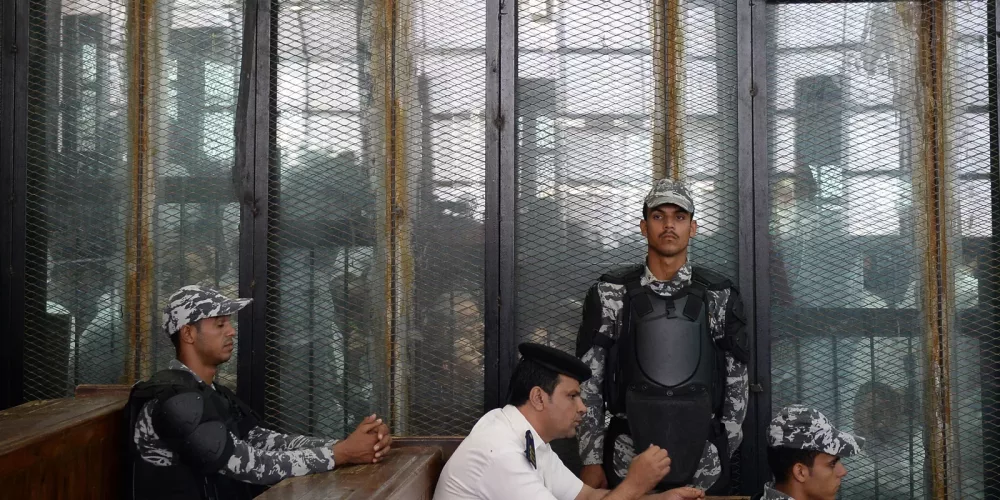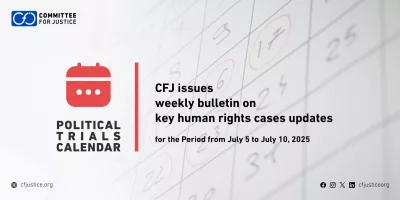Press Release
The Committee for Justice (CFJ) has expressed deep concern over the verdict issued by the Second Circuit of the Egyptian Terrorism Appeals Court, convened at the Badr Judicial Complex, which upheld the death sentence against detainee Mohamed Zaki Bashendi in the case known in the media as the “Kerdasa Popular Resistance Committees.”
– Rejection of the appeal:
The verdict was issued following the court’s rejection of the detainee’s appeal during the retrial proceedings. This decision was based on accusations made by the Public Prosecution, which claimed that he was involved in founding a terrorist organization aimed at obstructing constitutional and legal provisions and preventing state institutions from carrying out their duties.
The court found the detainee guilty of several crimes, including participation in the establishment of what was described as the “Nahya and Kerdasa Popular Resistance Committees” with the aim of disrupting the constitution, and the premeditated murder of three individuals, including a police officer, using firearms. The charges also included the possession of unlicensed weapons and ammunition, participation in an armed gathering of more than five people to influence authorities, attempted murder, and vandalism of public and private facilities.
The Public Prosecution argued in its investigations that the detainee, along with others who had already been sentenced, sought to destabilize the country and obstruct constitutional and legal operations. It claimed they had founded this group to carry out terrorist acts aimed at spreading chaos.
– Rejection and calls for sentence suspension:
In this context, CFJ expressed its rejection of the upholding of the death sentence, stating that the case, like many politically and security-sensitive cases, lacked the minimum standards for a fair trial. The committee noted that the verdict was based on investigations conducted by National Security officers without any tangible evidence presented to substantiate the allegations. This represents a serious breach of fair trial guarantees.
CFJ pointed out that death sentences issued by exceptional courts, such as terrorism courts, pose a significant threat to Egypt’s justice system. CFJ reminded that in other cases, the Court of Cassation had previously ruled that investigations alone are insufficient grounds for convictions, especially in crimes involving the right to life.
CFJ calls on the Egyptian authorities to halt the execution of Mohamed Zaki Bashendi’s death sentence and to ensure a retrial before an ordinary court, adhering to all fair trial standards, including the right to defense, presentation of evidence, and impartial handling of the case.
CFJ also urges a review of Egypt’s counterterrorism laws, criticizing them for being vague and overly broad, which has led to widespread human rights violations. The committee emphasized the need to amend these laws to bring them in line with international human rights standards, ensuring the protection of fundamental rights and freedoms that Egypt is obligated to uphold under its international commitments.






